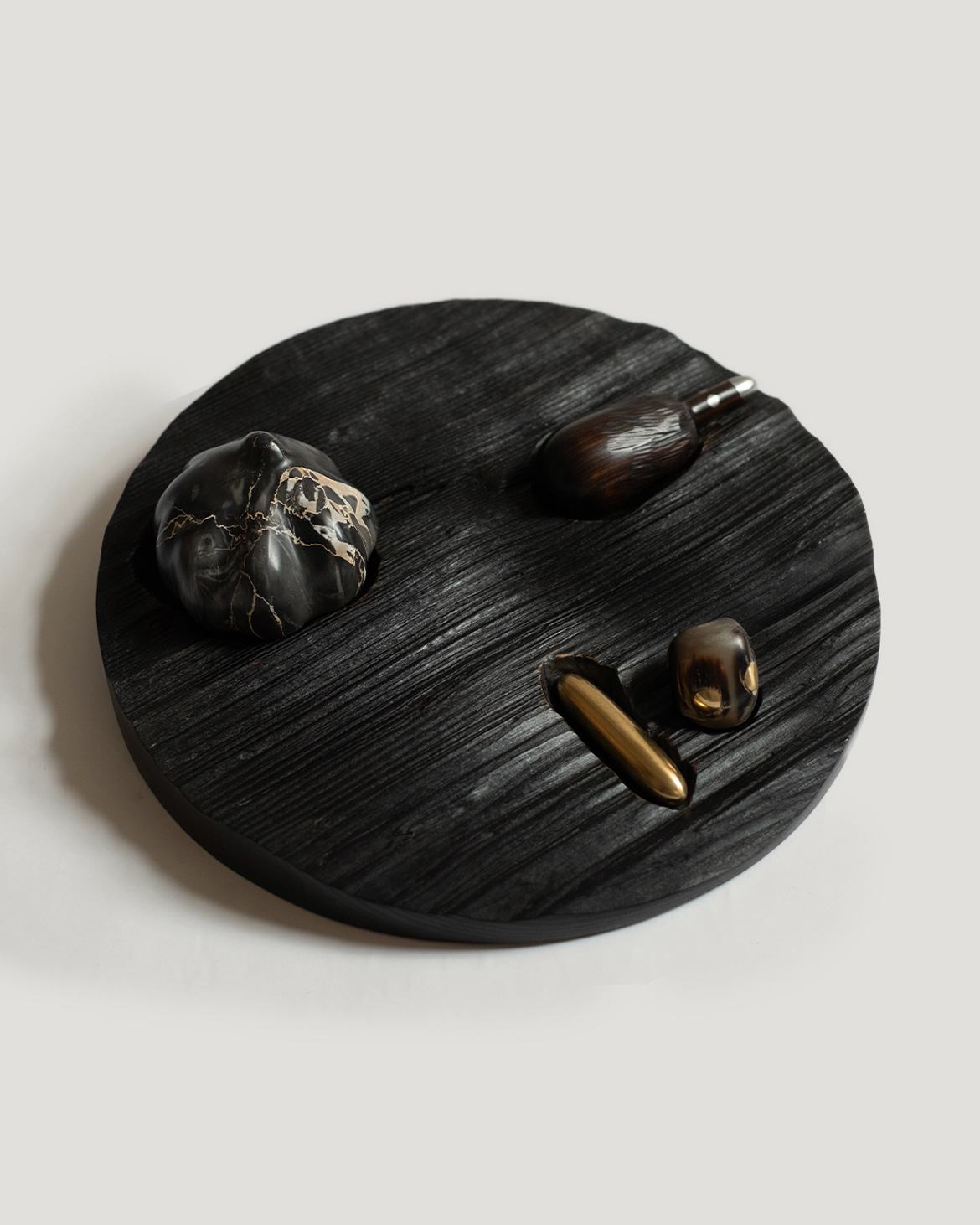This small wooden sculpture embodies the Confucian concept of mu xīn or “no mind,” where the mind finds its true residence not in thought, but in the heart (xīn). The lower half, darkened by burnt magnolia, represents the subliminal, an unknown depth beyond conscious awareness.
The division marks the line of liminality, where form shifts from material reality into abstraction. Above this, the wood takes on a more fluid, plastic representation of the formless idea, manifesting as a quiet meditation on mind and heart. The brass, gleaming sharply just above the line of awareness, becomes the locus of the idea, an illumination in the blackness of the void. Pewter fills the scars in the wood, symbolising the heart’s quiet resilience, and the scars themselves, intrinsic to the piece, suggest that even in no mind, ideas emerge from the deepest wounds.













